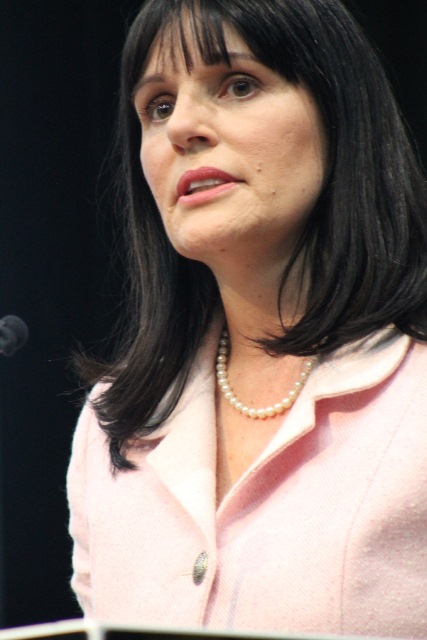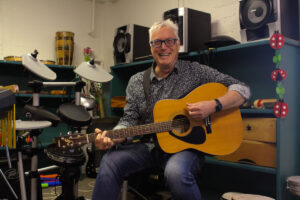Candidates stake out positions on water meters
Water, water everywhere, so how will we pay for its use? An unexpected theme of last night’s mayoral candidates meeting at Wintec’s Atrium was the vexed subject of water meters.
Water metering was the topic on everybody’s tongues at yesterday’s Hamilton mayoral debate at Wintec’s Atrium.
Current Mayor Julie Hardaker has ruffled a few feathers with her decision to support discussion on installing water meters, and talk at the debate returned to the matter several times.

“In December last year at the request of councillors the staff brought back a report about water demand management,” Hardaker said.
“Why? Because it’s a very big and important issue for the city, and in fact the whole of New Zealand.”
The best way to reduce water consumption for the city was to install meters, Hardaker said.
“You currently pay for water in your rates. Everyone just pays the same. Water metering of course means that you pay on your consumption.”
Allaying fears of double bills, she assured those gathered at the debate residents would not have to pay twice, and that it was simply a different way of paying.
“It’s a spread cost, whatever the water costs to produce and deliver, everyone pays it. Water metering would mean that each household would pay for that cost,” she said.
Hardaker appeared to be alone on her stance, with several other mayoral candidates rejecting the idea entirely.
Hamilton City Councillor and mayoral hopeful Ewan Wilson said: “I will not privatise your water, and unlike Julie, I do not support water metering.
“We lose approximately 30% of our water through leaks that we’ve yet to identify. How about if we fix the leaks first?”
Fellow councillor and candidate Dave Macpherson said council had not yet looked into other alternatives, and needed to try everything else before looking into meters.
“We’ve barely scratched the surface of education and promotion of alternatives, like rainwater tanks, rainwater reuse, and fixing the current leaking systems,” he said.
One man in the crowd of about 250 asked how metering would affect renters.
“A large percent of renters are of the lower socioeconomic end of society,” he said.
“As other councils have shown, landlords will not reduce rent to compensate for the fact that they’re not paying that extra bit in the rates. They just make a bit of profit.”
Hardaker said the idea of introducing water meters had not yet been discussed in depth, so issues such as these had not been approached, but they were the types of discussions that needed to be had.
She stressed that no decision had been made on water metering, and it was simply a topic that needed to be brought up.
“The debate needs to be had with the community,” she said. “We shouldn’t shy away from these discussions.
“As we grow as a city, and our consumption grows, we’ve got to deal with these issues.”
Hardaker also said she did not support privatising the water, but Macpherson said there was no way to control it.
“There is no way, even if you have a policy with this council, to stop a future council from selling a corporatised council activity,” Macpherson said.
He pointed to water bills of nearly $2000 that some Auckland residents were receiving.
“There is no direct control. That’s the sort of problem you get into once you introduce water meters. Let’s try everything else first. We haven’t yet.”
Mayoral candidate Tony Dixon said he found it “absolutely abhorrent” that people should want to make a profit out of providing “what is basically a human right”.
Another candidate Jack Gielan said “The water is not for sale. It’s God-given, it’s a precious commodity, it’s a taonga.”
Candidate Ian Hanley told the audience they would not have to pay for water if they did not have a water meter, despite Hardaker saying water was included in rates.




